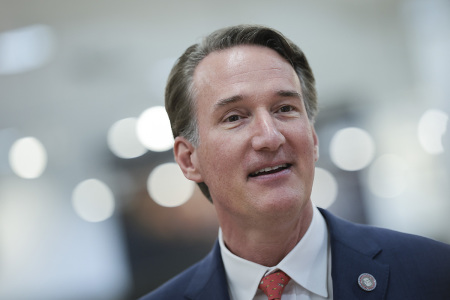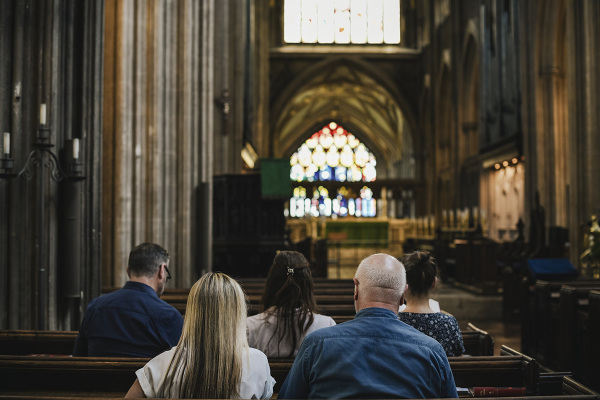Youngkin signs bill codifying right to same-sex marriage into Virginia law

Republican Virginia Gov. Glenn Youngkin has signed a bill codifying same-sex marriage into law nearly a decade after the U.S. Supreme Court established a right to same-sex marriage.
Youngkin signed House Bill 174 into law Friday after the measure passed both houses of the Democrat-controlled state legislature. The legislation was one of more than 60 bills approved by Youngkin Friday.
He did not offer a comment on House Bill 174 in particular but praised the collection of bills he signed as "a clear demonstration of what can be achieved when we set politics aside and work together for Virginians."
The measure adds a new section to the Code of Virginia declaring "marriage lawful, regardless of sex, gender, or race of parties." It also states that no person authorized "to issue a marriage license shall deny the issuance of such license to two parties contemplating a lawful marriage on the basis of the sex, gender, or race of such parties."
The Virginia Senate approved House Bill 174 in a 22-17 vote on Feb. 19, with one Republican joining all Democrats in supporting it. All opposition to the legislation came from Republicans.
On Jan. 26, the Virginia House of Delegates passed the bill in a 54-40 vote. Like in the Senate, all Democrats who voted on the legislation supported it. Five Republicans joined Democrats in supporting the legislation.
Same-sex marriage has been legal in all 50 states since the U.S. Supreme Court issued its Obergefell v. Hodges decision in 2015. The ruling invalidated all remaining bans on same-sex marriage at the state level and established a right to same-sex marriage.
However, efforts to codify a right to same-sex marriage into law picked up steam after the U.S. Supreme Court's 2022 Dobbs v. Jackson Women's Health Organization decision, which overturned the Roe v. Wade ruling that legalized abortion nationwide.
While the Dobbs decision made no changes to existing same-sex marriage law, Supreme Court Justice Clarence Thomas issued a concurring opinion suggesting that the legal principle of "substantive due process" at the center of the Roe ruling was "legal fiction."
Although Thomas agreed with the justices who formed the majority opinion in Dobbs that "nothing in [the court's] opinion [in Dobbs] should be understood to cast doubt on precedents that do not concern abortion," he maintained that the court should "reconsider all of this Court's substantive due process precedents," including Obergefell.
At the same time, Thomas contended that his colleagues should examine whether or not "other constitutional provisions guarantee the myriad rights that our other substantive due process cases have generated."
Thomas' concurring opinion expressing an openness to revisiting Obergefell caused panic among supporters of same-sex marriage. President Joe Biden signed into law the Respect for Marriage Act in late 2022, codifying the right to same-sex marriage established in Obergefell into federal law.
Other states have passed similar measures to House Bill 174, scrapping state bans on same-sex marriage that have gone unenforced since Obergefell in recent years, including Nevada.
Unlike in Virginia, Nevada's decision to eliminate the unenforced same-sex marriage ban was made directly by voters. In 2020, 62.43% of Nevada voters approved Question 2, while 37.57% opposed it.
Meanwhile, other states have sought to clarify that people with deeply held religious beliefs that marriage is a union between a man and a woman do not have to perform same-sex marriages.
Last month, Tennessee's Republican Gov. Bill Lee approved a measure stating that "a person shall not be required to solemnize a marriage if the person has an objection to solemnizing the marriage based on the person's conscience or religious beliefs."
While Virginia's House Bill 174 asserts that "religious organizations and members of the clergy acting in their religious capacity shall have the right to refuse to perform any marriage," it does not contain an exception for county clerks or other people tasked with performing marriages that have deeply held religious beliefs about marriage.
Kim Davis, a county clerk in Kentucky who declined to provide licenses for same-sex marriages due to her religious beliefs, was jailed and continues to face fines and litigation nearly a nine years after the Obergefell decision.
Ryan Foley is a reporter for The Christian Post. He can be reached at: ryan.foley@christianpost.com





















